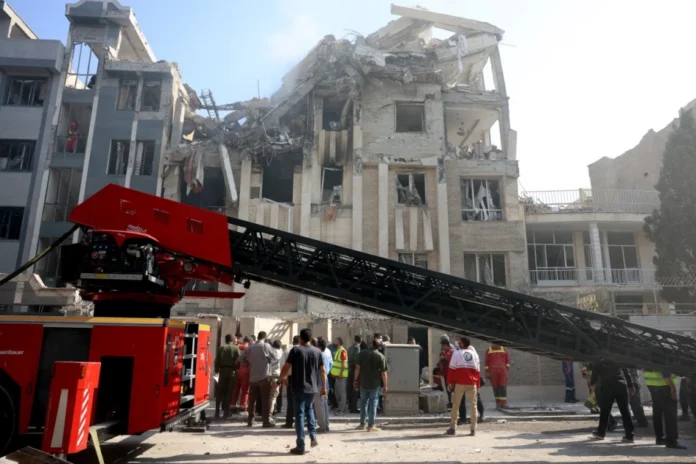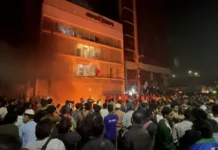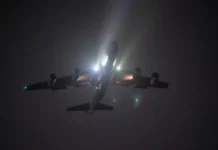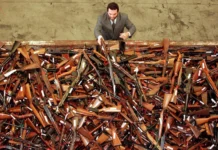
Tensions in the Middle East soared on Friday after Israel launched a massive aerial offensive against Iran, targeting over 100 sites including nuclear facilities, military compounds, and key leadership figures in what Prime Minister Benjamin Netanyahu described as a direct strike at the “heart of Iran’s nuclear program.”
Among those killed in the Israeli airstrikes were Iran’s Armed Forces Chief of Staff Mohammad Bagheri, Revolutionary Guards commander Hossein Salami, and several senior nuclear scientists, according to Iranian state media. Civilian casualties were also reported, with residential buildings in Tehran hit, killing women and children.
Iran’s Supreme Leader Ayatollah Ali Khamenei issued a stern warning, vowing that Israel would face a “bitter and painful” fate for what he called an act of aggression. Iran responded by launching over 100 drones toward Israeli targets, though the Israel Defense Forces (IDF) said its air defense systems were actively intercepting the threats.
In a televised address, Netanyahu confirmed that the strikes, involving 200 Israeli fighter jets, had successfully hit targets including the Natanz nuclear facility. “The operation will continue for as many days as it takes,” he said, calling the initial wave “very successful.”
The airstrikes prompted immediate international concern. Air traffic was suspended at Tehran’s Imam Khomeini International Airport, while Iraq closed its airspace and halted all flights. Israel also declared a state of emergency and shut down its own airspace, anticipating retaliatory missile or drone attacks from Iran.
The United States distanced itself from the Israeli action. President Donald Trump, speaking to Fox News, said he had been informed of the strikes in advance but emphasized that the U.S. was not involved and warned Iran against targeting U.S. assets. “Tehran cannot have a nuclear bomb,” Trump asserted. Secretary of State Marco Rubio echoed the message, urging Iran not to respond by attacking U.S. interests.
Despite the strikes, Trump said efforts to revive nuclear negotiations with Iran were still underway. “We’re still hoping to get back to the negotiating table,” he said, though he admitted the Israeli assault “might help” or “blow” the chances of a new deal. A sixth round of talks with Iran, previously scheduled for Sunday in Oman, now hangs in the balance.
Iran’s Defence Minister Aziz Nasirzadeh warned earlier in the week that U.S. bases across the Middle East were within Iran’s reach, threatening to strike them if conflict erupted. Tehran has since accused the U.S. of complicity, saying the Israeli strike “could not have occurred without Washington’s coordination and permission.”
Global markets reacted swiftly. Oil prices surged by 12 percent while global stocks dropped, reflecting investor anxiety over a widening conflict in the region.
The International Atomic Energy Agency (IAEA) confirmed that the Natanz site was among those hit and said it was closely monitoring radiation levels. The agency remains in contact with Iranian authorities and inspectors on the ground.
Meanwhile, Iran’s nuclear chief Mohammad Eslami condemned a recent IAEA resolution accusing Iran of non-compliance, labeling it “extremist” and blaming Israeli influence. Tehran has responded by vowing to establish a new uranium enrichment facility at a more secure location.
Iran currently enriches uranium up to 60 percent purity, approaching the 90 percent required for a nuclear weapon, far beyond the 3.67 percent cap established by the 2015 nuclear accord.
As tensions mount, regional and global actors are calling for restraint, though both Israel and Iran appear poised for further escalation.
Writtten By Rodney Mbua


















